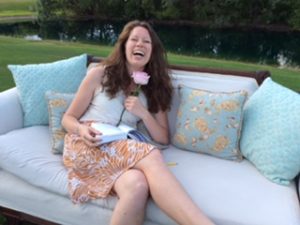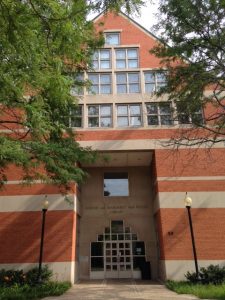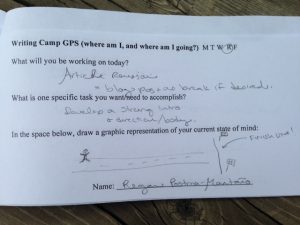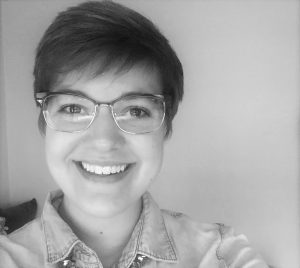By Emily Martin ’17
Austria—home of an iconic singing family, towering snow-covered Alps, and Vienna, a sparkling gem of art, music, and architecture, and my heart’s new resting place. Cheesy, I know. But also true. This summer, I had the incredible opportunity to study in Vienna for 3 weeks as part of the 65th annual Vienna Summer School, and I discovered that although I am neither a patron of the arts nor a musician or historian, Vienna will always hold hostage a huge piece of my heart. It’s a strange feeling—I’ve traveled extensively within the U.S. and no city has ever captivated me the way Vienna did. I can’t say what exactly it is about the city—could be the glittering Statsoper filled with women in ball gowns and men in tuxedos. Could be the gardens of Schӧnbrunn palace filled with sweet-scented roses and whisperings of the Hapsburgs who roamed there in centuries past. Could be the Kantnerstrasse filled with bustling people and a veritable Tower-of-Babel array of languages. Could be none of these things, or all of them. I remember being unreasonably excited about a telephone booth when we first arrived—my very jet-lagged roommate was not amused by my “I’ve never seen one in real life!” Whatever it is, Vienna has that intangible “thing” that has been ensnaring Hope students and non-Hope students alike for decades, and I am its latest victim. But what a captivity—our first and only weekend actually in the city, we had the chance to see Anatevka, or Fiddler on the Roof, and the Sound of Music—one on Saturday night and one on Sunday night. The Sound of Music is my favorite musical—my family watches it together every Christmas—and to see it performed in Austria was unbelievable. My journal entry for that day says, “I don’t even know what to write—I just pray I will always remember this.” I think I felt that way about every day in Vienna because every day brought a crazy slew of new experiences. Every day was a new adventure. From Vienna, my housemates and I went to Slovakia and then Greece and France and England and the Netherlands and Germany and Switzerland and Italy. We stayed in hostels, living out of our backpacks like typical college travelers. Before beginning this trip, I didn’t realize how much I would learn—about myself, about life, and about the world. Every country—every city even—was so new and so different, with so much to explore and discover. From the Parthenon in Athens to the black sand in Santorini to the rain in London and the windmills in Amsterdam—the world is so big and it is so full of crazy adventures just waiting to be had. I’ve always been restless, never content to stay very long in one place—always following the jet trails crisscrossing the sky and keeping my eyes fixed on the horizon. But after this trip, I know that’s who I am—a wanderer, an adventurer, always looking for life’s next. It’s both a gift and a flaw. Often, I find that I forget to live in the here and now. I’m always searching for what’s right around the corner instead of focusing on and appreciating the present. It’s something I work on every day. But, conversely, it also means I don’t wait around for life to come to me. As I write this from Holland State Park, looking out over Lake Michigan, I find myself wishing I was back on the black sands of Greece admiring the beauty of the Aegean Sea. But it’s only for a minute . . . I know I’m not finished. Life—the greatest adventure of all—is just beginning.





